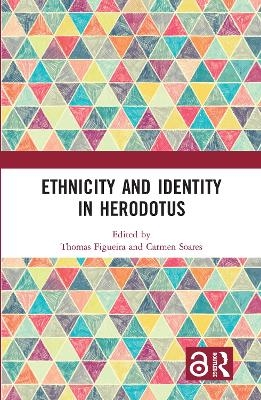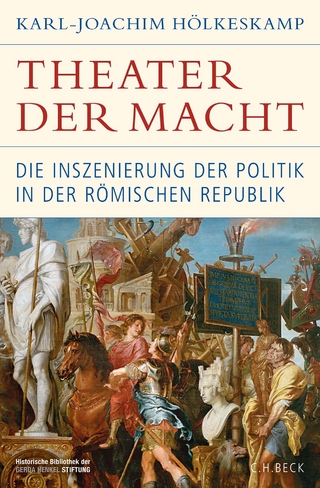
Ethnicity and Identity in Herodotus
Routledge (Verlag)
978-1-138-63111-3 (ISBN)
Herodotus is the epochal authority who inaugurated the European and Western consciousness of collective identity, whether in an awareness of other societies and of the nature of cultural variation itself or in the fashioning of Greek self-awareness – and necessarily that of later civilizations influenced by the ancient Greeks – which was perpetually in dialogue and tension with other ways of living in groups.
In this book, 14 contributors explore ethnicity – the very self-understanding of belonging to a separate body of human beings – and how it evolves and consolidates (or ethnogenesis). This inquiry is focussed through the lens of Herodotus as our earliest master of ethnography, in this instance not only as the stylized portrayal of other societies, but also as an exegesis on how ethnocultural differentiation may affect the lives, and even the very existence, of one’s own people.
Ethnicity and Identity in Herodotus is one facet of a project that intends to bring Portuguese and English-speaking scholars of antiquity into closer cooperation. It has united a cross-section of North American classicists with a distinguished cohort of Portuguese and Brazilian experts on Greek literature and history writing in English.
Chapters 8 and 9 of this book is freely available as a downloadable Open Access PDF at http://www.taylorfrancis.com under a Creative Commons (CC-BY) 4.0 license.
Thomas Figueira is Distinguished Professor of Classics and of Ancient History at Rutgers, The State University of New Jersey, USA. Carmen Soares is Professor (Professora Catedrática) of Classics of the University of Coimbra, Portugal, and Scientific Coordinator of the Center for Classical and Humanistic Studies of the same university.
Preface Introduction Thomas Figueira Part 1: The Methodology of Ethnic Identification in Herodotus 1. Herodotus’ Hermēneus and the Translation of Culture in the Histories Steven Brandwood 2. Language as a Marker of Ethnicity in Herodotus and Contemporaries Thomas Figueira 3. Protocols of Ethnic Specification in Herodotus Brian Hill 4. Emotion and Ethnicity in Herodotus’ Histories Emily Allen-Hornblower Part 2: Ethnicity among the Greeks 5. Mages and Ionians Revisited Gregory Nagy 6. Freedom and Culture in Herodotus Rosaria Vignolo Munson 7. Cosmopolitanism and Contingency in Herodotus: Myth and Tragedy in the Fourth Book of the Histories Alexandre Agnolon 8. A Goddess for the Greeks. Demeter as Identity Factor in Herodotus Nuno Simões Rodrigues Part 3: Ethnic Identity among the Barbaroi 9. Herodotus’ Memphite Sources Rogério de Sousa 10. The Greeks as seen from the East. Xerxes’ European Enemy Maria de Fátima Silva 11. Mirages of Ethnicity and the Distant North in Book Four of the Histories: Hyperboreans, Arimaspians and Issedones Renaud Gagné 12. Ethnicity in Herodotus. The Story of Helen through the Egyptians’ Eyes Maria do Céu Fialho Part 4: Reflections of Herodotean Ethnic Historiography 13. Barbarians, Greekness, and Wisdom: The Afterlife of Croesus’ Debate with Solon Delfim Leão 14. Scientific Discourse in Herodotus Book II of Histories and its Reflection in the Age of New World Discovery Carmen Soares. Index of Ancient Sources Subject Index
| Erscheinungsdatum | 27.01.2020 |
|---|---|
| Verlagsort | London |
| Sprache | englisch |
| Maße | 156 x 234 mm |
| Gewicht | 453 g |
| Themenwelt | Literatur ► Klassiker / Moderne Klassiker |
| Geschichte ► Allgemeine Geschichte ► Altertum / Antike | |
| Geisteswissenschaften ► Philosophie ► Philosophie Altertum / Antike | |
| Sozialwissenschaften | |
| ISBN-10 | 1-138-63111-6 / 1138631116 |
| ISBN-13 | 978-1-138-63111-3 / 9781138631113 |
| Zustand | Neuware |
| Haben Sie eine Frage zum Produkt? |
aus dem Bereich


